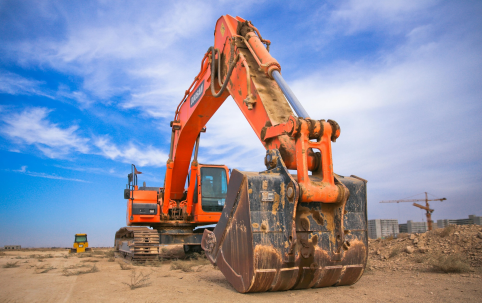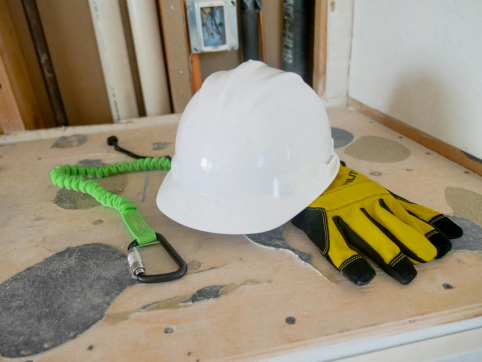lorem
- Cylinders, Inc
- Blog
The Cylinder Audit: What to Look for During Your Next Maintenance Shutdown
The Cylinder Audit: What to Look for During Your Next Maintenance Shutdown
Strategic maintenance shutdowns are more than scheduled pauses — they’re one of the most underused opportunities to create long-term uptime. In high-pressure environments such as construction, this is especially true when it comes to the health of hydraulic and pneumatic cylinders.
For maintenance managers, fleet directors, and operations leaders, the question isn't whether to audit your cylinders — it's how to leverage those audits as a strategic investment in uptime, performance, and cost efficiency.
Since 1991, we’ve conducted comprehensive audits of hydraulic cylinders operating in some of the Midwest’s most challenging environments. Our approach goes beyond standard inspections — we apply vendor-level expertise, engineering precision, and an in-depth understanding of system performance to deliver predictive solutions that drive excellence.
Top-Performing Companies Know Audits Are Not Optional

Equipment failure is more than an inconvenience — it’s a direct hit to productivity, budgets, and safety. That’s why top-performing operations are shifting from reactive maintenance to strategic reliability. And at the heart of that shift is the cylinder audit.
No longer just a nice-to-have, the cylinder audit is now a foundational component of every well-executed shutdown or service interval — a frontline tool for identifying issues before they become failures.
A properly executed audit goes way beyond visual checks or pressure testing. It is a structured, data-informed process that uncovers hidden wear, validates performance, and ensures every component is fit for purpose.
Here’s what we evaluate — and why it matters to you:
Proactive Audits = Predictable Uptime
When cylinder audits are integrated into planned maintenance cycles, they allow you to shift from firefighting mode to strategic control.
Instead of reacting to failures, ops teams can schedule rebuilds before critical failure windows, plan parts and labor ahead of time to avoid costly last-minute scrambles, and maintain tighter control over uptime, capacity planning, and project delivery commitments.
This forward-looking approach is why the leading construction firms and heavy-equipment operators are no longer treating cylinder health as “just another check.” They’re working closely with us and treating it as a strategic asset — one that protects equipment, optimizes operations, and delivers measurable gains in reliability and performance.
H2: Pinpointing Where Downtime Starts
A failed cylinder rarely happens without warning — it’s just that the early signs often go unnoticed. What appears to be a sudden malfunction is typically the result of months of accumulated system stress, minor faults, and progressive wear and tear.
The key to reducing unplanned hydraulic downtime is learning to detect these early-stage issues before they escalate into a full-blown failure.
The leading firms are increasingly turning to structured diagnostic approaches — like cylinder audits — to uncover hidden performance threats. To move beyond treating symptoms and instead identify root causes.

Rather than relying on reactive maintenance triggered by a shutdown, the top ops teams use data from these inspections to build a predictive timeline of wear and system stress.
This insight allows us to intervene earlier, target the actual source of the problem, and plan smarter service intervals.
It’s not just about spotting what’s broken — it’s about predicting it and understanding why it’s wearing out in the first place, something we looked at in detail in our How AI & Data are Transforming Hydraulic Maintenance article.
By taking this approach, we can shift from firefighting failure to strategically managing system health — minimizing surprises, protecting uptime, and keeping hydraulic equipment running at peak performance.
The Financial Costs of Bad Cylinder Maintenance
Think of every unplanned cylinder failure not as a maintenance problem, but as a financial red flag.
When audits aren’t prioritized, the impact is profound:
A single cylinder failure can bring an entire building site to a standstill, halting output for hours — sometimes even days — depending on the machine it supports.
And the ripple effects go far beyond the downtime…
Lost production time quickly translates into delayed projects or production, straining both revenue and relationships.
Emergency repairs drive up labor costs and often require expedited parts, compounding expenses that are already under pressure.
Worse still, failures in hydraulic or pneumatic cylinders can damage surrounding components, triggering cascading breakdowns across fluid power systems.
Over time, these unplanned disruptions significantly increase the total cost of ownership for your equipment. Companies with a strong audit program avoid these costly pain points.
By identifying early wear, misalignment, and contamination issues before they escalate, we can maintain control, protect system integrity, and keep operations moving smoothly.
Leading firms don’t react — they predict to prevent — turning audits into a guardrail against expensive failures.
How Construction Leaders Are Thinking Ahead
Those driving operational excellence don’t view cylinder audits as just another maintenance task; they treat them as a strategic pillar within their broader reliability and asset management programs.
They understand that downtime is expensive, and every opportunity to prevent it is an investment in productivity, safety, and cost control.
We support them in leveraging cylinder audits to stay ahead:
- Integrated Shutdown Protocols
Cylinder audits are now a standard part of shutdown procedures. From the moment maintenance is planned, audits are embedded into SOPs to ensure every hydraulic and pneumatic component is thoroughly inspected. Rods are checked for scoring, seals tested, and alignments verified to prevent stress and wear when systems restart. This proactive approach eliminates guesswork and ensures cylinders are ready for peak performance. - Digitally Connected Maintenance Systems
Audit results are fully integrated into CMMS platforms, replacing outdated paper reports. This digital integration allows teams to combine audit data with work orders, fluid analysis, and runtime metrics — enabling smarter, condition-based maintenance. With enhanced visibility, teams can spot trends, identify recurring faults, and develop predictive models that minimize downtime and optimize maintenance budgets. - Partnering with Vendor Experts for Lasting Impact
Leading operations collaborate closely with us to gain deeper insight. Expert technicians work alongside engineers to benchmark performance, analyze failure patterns, and refine reliability goals. This partnership goes beyond quick repairs, helping build resilient maintenance programs that deliver long-term value.
This strategic, data-driven approach is what sets reliability-focused leaders apart from those stuck in reactive mode.

Cylinder audits have evolved beyond routine maintenance tasks to become essential tools for securing uptime, minimizing operational risk, and unlocking long-term value — and at Cylinders, Inc., we’re helping clients make the shift to predictive data-driven maintenance.
Armed with detailed audit reports, maintenance leads can move forward with confidence — approving seal rebuilds, tube alignments, and other proactive measures backed by measurable ROI.
It’s not just about fixing problems; it’s about making smarter decisions that protect performance and profitability.
How Cylinders, Inc. is leading the Cylinder Audit Revolution
Cylinder audits aren’t just checks — they’re visibility tools. They bring actionable insights to the surface, uncovering wear, contamination, and misalignment before they silence your fleet.
With over 200,000 audits and repairs completed across hydraulic and pneumatic systems, we bring unmatched experience and expertise to every project.
Our comprehensive services — from seal replacements and rod polishing to bore honing, alignment checks, and fluid contamination analysis — ensure that every component is inspected and restored to optimal condition.
We understand the critical nature of downtime in the US construction sector, which is why our average cylinder rebuild turnaround is just one week, supported by a one-year warranty that builds confidence and reduces the need for costly reworks or false alarms.
Our audit process transforms routine maintenance into a strategic defense against unplanned failures, turning scheduled downtime into a tactical uptime advantage.
With vendor-level diagnostics, expert craftsmanship, and a profound understanding of hydraulic systems, partnering with us means more than just delaying failure — it’s about optimizing every hydraulic cycle, reducing total cost of ownership, and transforming uptime into a key competitive advantage.
In today’s demanding US construction landscape, we can help you position your fleet for resilience, reliability, and sustained success.
Recommended posts
%20(2)%20(1).webp)
%20(1).webp)
Contact
Request Your Cylinder Repair Today
Have a question about our pneumatic cylinder repairs? Contact Cylinders, Inc. to find out more about how our experts can help, or schedule your repair service today!